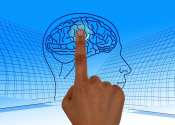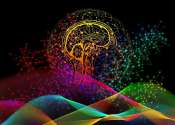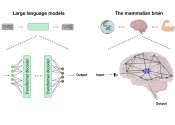Consciousness is a term that refers to the relationship between the mind and the world with which it interacts. It has been defined as: subjectivity, awareness, the ability to experience or to feel, wakefulness, having a sense of selfhood, and the executive control system of the mind. Despite the difficulty in definition, many philosophers believe that there is a broadly shared underlying intuition about what consciousness is. As Max Velmans and Susan Schneider wrote in The Blackwell Companion to Consciousness: "Anything that we are aware of at a given moment forms part of our consciousness, making conscious experience at once the most familiar and most mysterious aspect of our lives."
Philosophers since the time of Descartes and Locke have struggled to comprehend the nature of consciousness and pin down its essential properties. Issues of concern in the philosophy of consciousness include whether the concept is fundamentally valid; whether consciousness can ever be explained mechanistically; whether non-human consciousness exists and if so how it can be recognized; how consciousness relates to language; and whether it may ever be possible for computers or robots to be conscious. Perhaps the thorniest issue is whether consciousness can be understood in a way that does not require a dualistic distinction between mental and physical states or properties.
At one time consciousness was viewed with skepticism by many scientists, but in recent years it has become a significant topic of research in psychology and neuroscience. The primary focus is on understanding what it means biologically and psychologically for information to be present in consciousness—that is, on determining the neural and psychological correlates of consciousness. The majority of experimental studies assess consciousness by asking human subjects for a verbal report of their experiences (e.g., "tell me if you notice anything when I do this"). Issues of interest include phenomena such as subliminal perception, blindsight, denial of impairment, and altered states of consciousness produced by psychoactive drugs or spiritual or meditative techniques.
In medicine, consciousness is assessed by observing a patient's arousal and responsiveness, and can be seen as a continuum of states ranging from full alertness and comprehension, through disorientation, delirium, loss of meaningful communication, and finally loss of movement in response to painful stimuli. Issues of practical concern include how the presence of consciousness can be assessed in severely ill, comatose, or anesthetized people, and how to treat conditions in which consciousness is impaired or disrupted.









